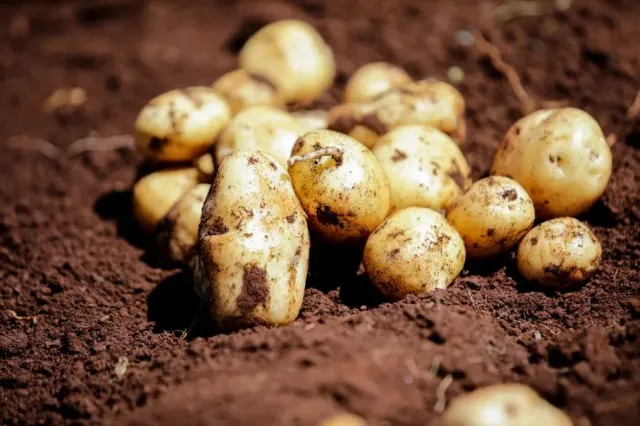The International Potato Center (CIP), in collaboration with Poderosa S.A., proudly unveils three new potato varieties: CIP PODEROSA CROCANTE, CIP PODEROSA WATIA, and CIP PODEROSA POLLERA.
These new potato varieties incorporate resistance to Late Blight Phytophthora infestans and high-quality attributes for baking, such as high dry matter content and low reducing sugar content. These varieties allow smallholder farmers to achieve enhanced yields while reducing their reliance on agrochemicals.
These new varieties are not only beneficial for farmers but also for consumers. From a health perspective, farmers and their families will experience reduced exposure to fungicides to control Late Blight, while consumers will enjoy potato tubers produced with fewer fungicides and lower levels of acrylamides and glycoalkaloids.
Additionally, these varieties can be integrated into family-sustainable farming systems, helping to preserve the environment and increase the income of small and medium-scale farmers.
Their economic profitability is enhanced by lower production costs due to reduced fungicide use compared to control varieties.
These varieties offer healthier and more sustainable options compared to popular Peruvian potato varieties, promoting improving living standards for potato producers in Peru and other developing countries.
Poderosa S.A. mining company operates in La Libertad, a potato-producing region of Peru, and works with local NGO’s to support the sustainable development of the farming communities through its corporate social responsibility and its sustainability projects.
Conscious of the need for improved varieties, Poderosa joined forces with CIP to develop these LATE BLIGHT resistance varieties that respond to customer demand.
The innovative varieties are the product of the “Selection of potato clones suitable for industrial processing and baking, resistant to late blight, and producing high-quality phytosanitary tuber seed project,” sponsored by the Consejo Nacional de Ciencia y Tecnologia e Innovacion del Peru (CONCYTEC) and funded by Minera Poderosa Company through Law 30309, which promotes scientific research, technological development, and technical innovation, providing tax benefits to companies for their partnerships with research organizations.
Poderosa actively promotes economic and social progress in the La Libertad region and is currently funding a three-year plan to disseminate these varieties, sharing related information through publications and social media.
The varieties are available for licensing to certified seed producers registered with the Peruvian Seed Authority (SENASA).
CIP applied for plant variety protection in accordance with UPOV and Peruvian legislation and can issue commercial production licenses. In accordance with its mandate, CIP requires licensees to accept providing good quality seed to smallholder farmers at preferential rates, securing in this way safe and broad dissemination and adoption of the varieties.
CIP also requires licensees to contribute financially to the Benefit Sharing Fund of the International Plant Treaty. The fund supports conservation and sustainable use projects in the global south.
The dissemination strategy aligns with Peruvian national priorities on production and availability and affordability of high-quality seed to farmers.
Further, the rights associated to the plant variety protection of the three PODEROSA varieties will not infringe or interfere with the rights of Peruvian indigenous communities and small holder potato farmers, who can save and exchange seeds of the varieties among themselves in accordance with the UPOV Convention, which Peru is part of.
These communities have been and are actively involved in and benefit from the development and dissemination of the new potato varieties. CIP seeks to promote the empowerment and sustainable livelihoods of these farmer and indigenous communities.
Acknowledgment is extended to local governments such as the District Municipality of Chugay and the Provincial Municipality of Sánchez Carrión in the La Libertad region, as well as farmers from Huánuco, Junín, Arequipa, and Cajamarca, with whom field research was conducted.
Also Read
Biotalys named sustainable crop protection company of the year
SA Agriculture reverses course and dips by 2.1% in Q2 of 2024
